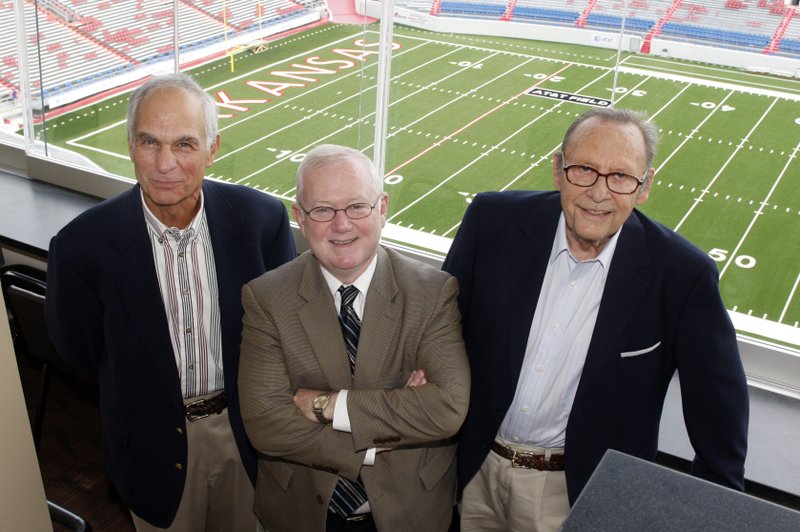It was a ripple of sadness that spread quickly Wednesday evening when it was learned that Jim Bailey had died.
Millennials probably don't remember Jim and that's their loss.
Jim was a sports writer's sportswriter. A storyteller in print and person who could keep groups spellbound for hours as he remembered stories from boxing, football, baseball, basketball and just about any other sport.
Jim was a role model and mentor to every sportswriter who passed through his life.
In the summer of 1969 Jim was Orville Henry's right-hand man -- and the Orville to all the other Arkansas schools but the University of Arkansas. He was told to work with a young guy who had just started.
Jim shared some wisdom, broke bread a couple of times and then it was football season. On Friday nights all but a couple of reporters surrounded the phones and took game information and then typed it up.
The young man thought his first story was pretty eloquent and captured the essence of the game. The story was passed on and the phone rang again and again and again and for two hours short high school game stories were written, the final deadline came and people were gathering to leave.
Jim looked over at the young man and approached him. The young man was naive enough to think he was going to get some praise from one of the all-time greats.
"Uh, not a bad job," Jim said, holding the original story in his hand, "but in the future you might want to consider including the score. It is kind of important."
A few months later the young man's lottery number was 123, and they were projecting Arkansans under 250 would be drafted. The next day Orville called the guy over and recommended he go in the Air Force. That night Jim agreed and it was a done deal.
After the newspaper war Jim was hired by the Arkansas Democrat-Gazette as sort of a writer at-large. No one wanted to give Jim Bailey orders. Plus, Jim needed a little advance notice if you needed him to travel. He didn't drive. In the early years he rode the city bus. Later his lovely wife Peggy graciously drove him anywhere and everywhere.
A few times when Jim was here the sports department would go almost silent. Newspapers are not quiet places, and it didn't take long to understand that Jim was giving a "class" to the young guys, mostly sharing stories about coaches from the old AIC or boxing. He loved boxing.
A little more than five years ago Jim retired. He was 81 and tired. His health was failing and he didn't want to be a burden to anyone, especially since that keen memory of his had started to dull.
Jim died from complications of Alzheimer's which he lived with for 10 years. Alzheimer's robs people of their memory, yet, nothing could change the great memories everyone has of Jim.
He didn't have an enemy in the world. Once, in the late 1980's on the old Southwest Conference tour, everyone was checking into the hotel, and across the lobby a voice called out, "Is that you Jim Bailey?" It was Dicky Maegle, made famous in the 1954 Rose Bowl when he was running for a touchdown and Alabama's Tommy Lewis, who was on the sidelines, tackled him.
Maegle had one request: "Jim, after dinner wait on me to get to the hospitality room before you start telling stories."
Jim transcended sports. Sportswriters admired him, but he was highly respected by coaches and players, too.
He was one of a kind, and no one touched the lives of more young sportswriters than Jim Bailey. And to this day I haven't left out another score.
Sports on 01/04/2019

